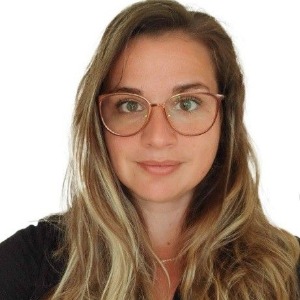Title : The role of social sciences in operationalizing the One Health approach: A case study of the DOPERAUS project in Guinea and the Democratic Republic of Congo
Abstract:
The DOPERAUS project (Decentralize and Operationalize One Health Platforms in Guinea and the Democratic Republic of Congo) addresses persistent barriers to implementing the One Health (OH) approach in both countries, including weak governance, uneven sectoral funding, and limited interdisciplinary collaboration. While OH is promoted as an integrated systems approach to better address complex health challenges, the social and gender dimensions of disease vulnerability remain largely overlooked. This study aims to respond to the following question: How are social sciences perceived, mobilized, and integrated into the operationalization of the One Health approach within the DOPERAUS project in Guinea and the Democratic Republic of Congo?
This study seeks to understand how social sciences are perceived, mobilized, and integrated within the DOPERAUS project to operationalize the One Health approach. It examines who is involved by describing the transdisciplinary and institutional profiles of project members, explores how these actors view and experience interdisciplinary collaboration, and analyses the role they attribute to social sciences in addressing complex health challenges. The study also aims to identify the main factors that enable or hinder the effective integration of social sciences in One Health initiatives.
This mixed-methods study combines an online questionnaire (30 project members: researchers, practitioners, trainers, field investigators, and partners) with a documentary review of project reports and materials. The questionnaire captures sociodemographic data, OH experience, perceptions of interdisciplinary work, and the value placed on social sciences. Quantitative data are analyzed using descriptive statistics, while qualitative responses undergo thematic analysis following Clarke and Braun (2006). Documentary analysis examines how social sciences are referenced and implemented in project activities. Triangulation of findings generates actor profiles, maps representations of interdisciplinarity, and identifies practical levers and constraints for integrating social sciences in OH operationalization.
The preliminary insights (data collection ended August 8th, 2025) of this study show that DOPERAUS employs an action-research approach to strengthen existing OH platforms, enhance cross-sector coordination, and integrate socio-anthropological and gender perspectives into outbreak preparedness and response. However, significant challenges remain, particularly in achieving genuine intersectoral collaboration. Social scientists are often involved as external consultants rather than as core project leaders, with less access to funding and fewer opportunities to serve as principal investigators. This structural imbalance can limit their ability to shape research agendas and to fully integrate social dimensions into One Health strategies. By fostering collaboration among animal, environmental, and human health sectors, and bridging the gap between biomedical and social sciences, the project nevertheless provides a unique opportunity to examine how social sciences can move beyond a peripheral role to become a central, operational driver in OH initiatives.



